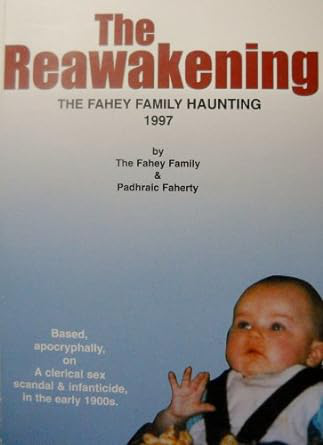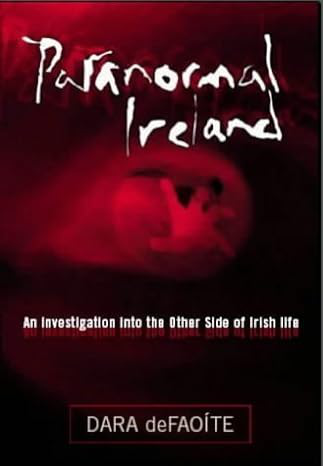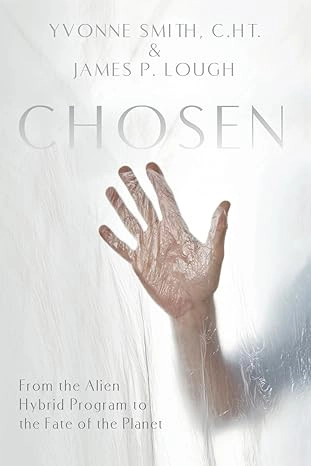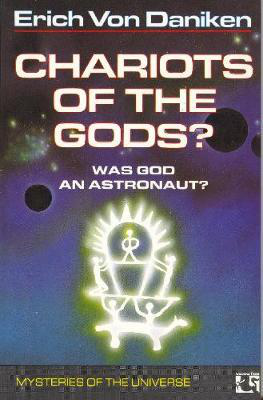Inside Sweden's 4.2 Kilometres Of Paranormal Archives
Ghost/Paranormal
Sunday 24th, March 2024
3 minute read.
In the quaint southeastern town of Norrkoping, Sweden, lies an enigmatic repository of human curiosity and fascination, the Archives for the Unexplained (AFU). Nestled underground, this sprawling labyrinth of shelves stretches over 4.2 kilometres, housing a treasure trove of paranormal phenomena documentation. Led by Clas Svahn, 65, and Anders Liljegren, 73, the AFU stands as a testament to relentless exploration and investigation into the mysteries that have captivated humanity for centuries.
The AFU, often dubbed the world's largest library of paranormal phenomena, welcomes both the inquisitive and the scholarly. Its shelves groan under the weight of newspaper clippings, books, and first hand accounts from individuals who claim to have ventured to other planets and encountered spectral entities. However, Svahn and Liljegren maintain a stance of curious investigation rather than blind belief, asserting themselves as stewards of the unknown.
"Our aim at AFU is to accumulate knowledge", explains Svahn, as he guides AFP journalists through the expansive 700 square metre library. "We're striving to document every unsolved scientific mystery we encounter, making it accessible to the world".
The AFU's archives, open to around 300 visitors annually by appointment, have embarked on a journey towards digitalization. Much of the collection is now accessible via a server, with access codes freely provided by the custodians. Greg Eghigian, a history and bioethics professor at Pennsylvania State University, attests to the AFU's significance, describing his time there as "the most fascinating and productive" of his archival experiences. He emphasises its pivotal role in the study of the UFO phenomena, asserting that "one cannot study the subject thoroughly without consulting its holdings".
The study of UFOs, long shrouded in stigma, is gradually gaining recognition as a legitimate field of scientific inquiry. NASA's official involvement in UFO research in September 2023 marked a significant milestone, signifying a shift towards a "rigorous, evidence based approach" to the discipline.
Within the depths of the AFU's archives lie captivating artefacts, including a clandestine manuscript from the former Soviet Union's underground UFO community. Svahn leafs through its yellowed pages, revealing handwritten notes in Russian alongside sketches of mysterious rockets. He suggests that these sightings were likely secret rocket launches from the Plesetsk base, shedding light on previously obscured events.
Yet, the AFU's collection extends beyond UFOs, encompassing a myriad of paranormal phenomena and folklore. Anecdotes, such as Victor Hugo's encounters with his deceased daughter during his exile on the British island of Jersey, offer glimpses into the intersection of the paranormal and historical figures' lives. These writings, which contributed to the birth of Caodaism in Vietnam, highlight the profound impact of paranormal experiences on culture and religion.
Magnus Bartas, curator of the Norrkoping Museum of Art, underscores the AFU's broader significance, stating that it encompasses not only folklore but also the beliefs associated with paranormal phenomena. He views the archive as a beacon of inclusivity, providing validation to experiences often dismissed by society.
"We love to see this as a social thing, impacting society all around the world and impacting people's lives", Svahn remarks, encapsulating the AFU's ethos of open minded exploration.
The Archives for the Unexplained stands as a testament to humanity's insatiable curiosity and quest for understanding. By documenting and preserving the mysteries that permeate our world, the AFU invites us to embrace the unknown with open minds and open hearts. As Bartas eloquently puts it, "The archive says something is unexplained. That means we shouldn't reject it. We should investigate it. We should be open."
The AFU, often dubbed the world's largest library of paranormal phenomena, welcomes both the inquisitive and the scholarly. Its shelves groan under the weight of newspaper clippings, books, and first hand accounts from individuals who claim to have ventured to other planets and encountered spectral entities. However, Svahn and Liljegren maintain a stance of curious investigation rather than blind belief, asserting themselves as stewards of the unknown.
"Our aim at AFU is to accumulate knowledge", explains Svahn, as he guides AFP journalists through the expansive 700 square metre library. "We're striving to document every unsolved scientific mystery we encounter, making it accessible to the world".
The AFU's archives, open to around 300 visitors annually by appointment, have embarked on a journey towards digitalization. Much of the collection is now accessible via a server, with access codes freely provided by the custodians. Greg Eghigian, a history and bioethics professor at Pennsylvania State University, attests to the AFU's significance, describing his time there as "the most fascinating and productive" of his archival experiences. He emphasises its pivotal role in the study of the UFO phenomena, asserting that "one cannot study the subject thoroughly without consulting its holdings".
The study of UFOs, long shrouded in stigma, is gradually gaining recognition as a legitimate field of scientific inquiry. NASA's official involvement in UFO research in September 2023 marked a significant milestone, signifying a shift towards a "rigorous, evidence based approach" to the discipline.
Within the depths of the AFU's archives lie captivating artefacts, including a clandestine manuscript from the former Soviet Union's underground UFO community. Svahn leafs through its yellowed pages, revealing handwritten notes in Russian alongside sketches of mysterious rockets. He suggests that these sightings were likely secret rocket launches from the Plesetsk base, shedding light on previously obscured events.
Yet, the AFU's collection extends beyond UFOs, encompassing a myriad of paranormal phenomena and folklore. Anecdotes, such as Victor Hugo's encounters with his deceased daughter during his exile on the British island of Jersey, offer glimpses into the intersection of the paranormal and historical figures' lives. These writings, which contributed to the birth of Caodaism in Vietnam, highlight the profound impact of paranormal experiences on culture and religion.
Magnus Bartas, curator of the Norrkoping Museum of Art, underscores the AFU's broader significance, stating that it encompasses not only folklore but also the beliefs associated with paranormal phenomena. He views the archive as a beacon of inclusivity, providing validation to experiences often dismissed by society.
"We love to see this as a social thing, impacting society all around the world and impacting people's lives", Svahn remarks, encapsulating the AFU's ethos of open minded exploration.
The Archives for the Unexplained stands as a testament to humanity's insatiable curiosity and quest for understanding. By documenting and preserving the mysteries that permeate our world, the AFU invites us to embrace the unknown with open minds and open hearts. As Bartas eloquently puts it, "The archive says something is unexplained. That means we shouldn't reject it. We should investigate it. We should be open."



